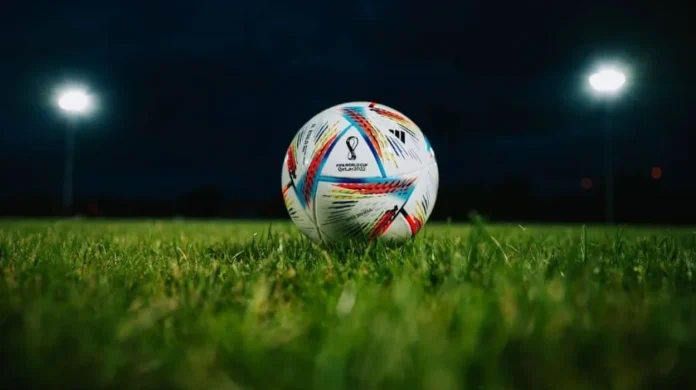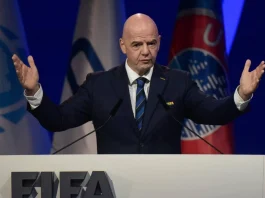The number of people who criticize FIFA on the basis of fair play and sporting fairplay is also on the increase in 2025, when people in the football world react against what they see as the random incidence of rules imposed and the punitive action that goes their way. The scandals involving racism and other forms of abuse, the disproportionate action on misbehavior during games and breach of financial regulations, etc. have raised the question of inconsistency across the board in FIFA application of rules applicable to all stakeholders. Its effects go far beyond whether the sport should appear as realistic, but also the viability of the sport as a cultural phenomenon resting on fair play and meritocracy.
Irregular application of penalties across regions and players
Among the most obvious problems is the way in which FIFA disciplines the organizations on the violations of players or teams. The Disciplinary Code, last updated in 2023, states that the sanctions where the standardized forms of the disciplinary liability should be applied, yet they are implemented differently. When star players of powerful federations are involved in offenses such as violent behavior or politically influential gestures, they then expect to be given easy verdicts in the case, which in no way is true of players who are lesser known and therefore the representatives of lesser known federations.
The red card dispute that engulfed the 2025 African Cup of Nations where a high profile club team player in a European league managed not to be suspended after a video review due to an elbow is a very sharp contrast to the three-match ban awarded to an Uzbek midfielder by the AFC cup championship for the same offense. Such inconsistencies undermine the confidence in the regulatory mechanisms and serve as a place-holder of corruption accusations.
Financial Fair Play inconsistencies and regulatory leniency
The efforts made by FIFA to exercise Financial Fair Play (FFP) using its regulatory framework have also been on the receiving end. Closed-door arbitration in the recent years has seen elite clubs who have close political and business connections get their fine waived or postponed whereas smaller or politically insignificant clubs have been severely penalized with transfer bans and deductions of points.
It has been noted by analysts that clubs forming part of major regional confederations or also, the sports which become the sponsor of the World Cup, also gain excessive freedom granted by the authorities in terms of compliance to the regulations. This structural imbalance also distorts the competitive environment further, which enables the already dominant teams to amass more advantages by exercising regulatory tolerance.
Commercial and political dynamics shaping enforcement
The extensive business ecosystem commanded by FIFA, with media rights, corporate sponsorship deals, hosting deals of the World Cup in the mix, and provides a massive incentive to not want to penalize key actors. Long-established relations with financial or geopolitical influence will bestow national associations with laxity, especially when it comes to controversies around eligibility or political involvement in matches.
An example of this is when FIFA in early 2025 voted to postpone disciplinary measures against a South American federation that had been accused of match-fixing as it was seen as a reason linked to upcoming World Cup hosting negotiations. On the same note, there has always been suspicion as to officiating controversy in countries with good commercial relation to FIFA even as FIFA supposedly has a rule of procedure integrity.
Tensions between disciplinary consistency and stakeholder appeasement
This is accompanied by ongoing challenges of striking the right balance between aspirations of governance and political expediency. FIFA has to work under pressure at home by member states who are influential and cause delays in procedures or make decisions like a soft wind blows. What comes out is an ecosystem of discipline where certain violations result in a prompt correction and others get swept in silence or rebranded in an attempt to prevent the diplomatic backlash.
The nature of such dynamics was made especially clear when it came to the 2025 Women World Cup qualifiers, a system that saw several eligibility violations result in radically different outcomes between various groups of teams, highlighting the politicized approach to enforcement decisions once again.
Impact on competitive equity and public perception
Selective application of rules misplaces competition and does nothing good to the core essence of football which is fair play. Teams that face more verified examination or even the more severe compensation should be put at an unfair benefit that reduces the meritocratic nature that promotes the underdogs and motivates sports participants worldwide.
During tournaments like the 2025 CONCACAF Gold Cup, there were discrepancies in VAR application and officiating review, all which had direct impacts on the outcomes of matches, thereby leaving doubts as to whether rules are applied equally, or made accommodating to preferred players and organizations. These gaps are detrimental to trust conveyed on the results and eviscerate legitimacy of international competition.
Damaging the sport’s moral authority
The image of FIFA is based on the fact that it is the neutral keeper of the international code of football. The perception of double standards not only fuels the media with the idea of skepticism but also cuts across fans and civil society players promoting sport as a symbol of the ability to unite and lead in justice.
This erosion is highlighted in the 2025 backlash against the handling of the racial abusers in the club and national matches by FIFA. Foreign banks continued to evade fines and closures during the year, even though there were stricter rules made in that same year. FIFA is criticized by anti-racism advocates and players associations over the vague reaction to notable events that require strict application of protection regulation.
Reform efforts and persistent structural deficiencies
In January 2025, the Council of FIFA launched new governance and disciplinary reforms to solve the problem of credibility concerns. These were to include offering greater protection to whistleblowers, a more comprehensive determinant of discriminatory behaviour and letting disciplinary panels could override confederation decisions.
Although these alterations are an indication of realizing the loopholes in the system, watchdog organizations such as Transparency in Sport are of the view that these changes do not warrant actual accountability. The existence of internal review structures continues to circumscribe the ability of the internal review organs to exercise any independence in the contentious issues involving the higher-level associations or sponsors due to the structural dependence on FIFA leadership.
The call for independent oversight
A growing chorus of policy experts and athlete advocates has called for the creation of an autonomous enforcement body separate from FIFA’s governance. This mechanism may entail cross sectoral representation and staffing including legal academicians, retired players, etc. and it will operate with transparent means of handling the cases.
The issue will be to beat the embedded internal culture at FIFA, where sometimes transparency will be in conflict with self-protection of the organization. Reforms can turn into performative and not transformational without external audits and enforcement autonomy.
The broader implications for sports governance
The fight against FIFA enforcement is typical of the overall issue of sport governance worldwide: business enterprise and ethics, apoliticism in areas of political explosions in hot zones, and rights of under-represented players and viewers.
Such tensions do not just occur in the field of football but are also found in the Olympic institutions, tennis organizations, and cricket councils. However, FIFA still is the most exposed and powerful world sports institution- and therefore its governance life a bellwether one.
The role of technology and civic engagement
Technological advances such as expanded VAR, AI-driven foul analysis, and digital whistleblower platforms offer potential tools for improving transparency. However, their effectiveness depends on whether institutions can use them impartially.
Public engagement—via fan-led watchdog groups, athlete coalitions, and social media advocacy—continues to shape FIFA’s accountability landscape. The surge of online petitions and player protests during the 2025 Club World Cup demonstrated the power of civic mobilization in demanding consistency and justice.
This person has spoken on the topic and summarized the situation accordingly: Governance analyst Nick McGeehan recently noted, “FIFA’s selective rule enforcement symbolizes a crisis of sports governance that goes beyond football—it’s about trust in institutions and fairness in global culture.” His analysis situates the issue not only in sporting terms but in the broader erosion of institutional legitimacy across sectors.
FIFA’s internal inconsistencies and the resulting crisis of credibility underscore a pivotal question: can the organization that governs the world’s most beloved sport reform itself in time to preserve the very values that make football a universal language? As 2026 approaches and global tournaments loom, the world watches not just the games—but the governance behind them.




